Discover the Health Benefits of Indian Superfoods! A guide to unlocking the power of turmeric, amla, moringa, millets, lentils, and spices for a healthier you. Dive in for a tasteful journey to wellness!
Namaste Readers! In our desi kitchen, we have hidden gems that are not just yummy but also packed with goodness. Forget those fancy foreign foods; our own Indian superfoods are readily available and can work wonders for your health.
This guide will help you unlock the power of these incredible ingredients and show you how to include them in your daily diet for a healthier and happier you. Let’s dive in!
Turmeric, a powerful Indian superfood with antioxidant properties
Haldi, or turmeric, as the world knows it, is perhaps the most celebrated Indian superfood. It's that bright yellow spice your mom adds to almost every curry, and for good reason.
Turmeric gets its superpowers from a compound called curcumin, which is a potent antioxidant and anti-inflammatory agent.
This means it can fight off harmful free radicals in your body and reduce inflammation, which is linked to many chronic diseases like heart disease, arthritis, and even some types of cancer. Having turmeric daily is great for the body.
Adding turmeric to your diet has multiple health benefits
Adding turmeric to your diet is super easy. You can add a pinch to your milk (haldi doodh is a classic remedy for colds and coughs), sprinkle it on your vegetables while cooking, or even take curcumin supplements (after consulting your doctor, of course).
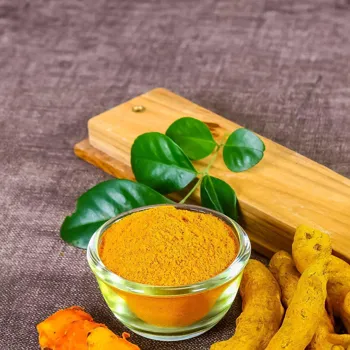
You can also make a simple turmeric tea by boiling water, adding a teaspoon of turmeric powder, a squeeze of lemon juice, and a dash of honey. Regular consumption of turmeric can improve your overall health, boost your immunity, and give you that healthy glow we all desire.
So, don't underestimate the power of this golden spice! It is beneficial to have turmeric every day in your diet and see the difference.
Amla: A powerhouse of Vitamin C for immunity and health
Amla, also known as Indian gooseberry, is a small, green fruit that's a powerhouse of Vitamin C. In fact, it contains more Vitamin C than oranges! Vitamin C is crucial for boosting your immunity, which helps your body fight off infections and illnesses.
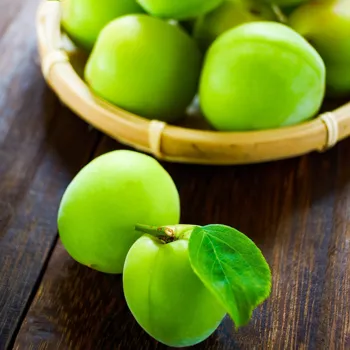
Amla is also rich in antioxidants that protect your cells from damage and promote healthy aging. It is one of the greatest gifts that we've received. And it's so good for us. You must use it.
Amla: versatile superfood for health and immunity
You can enjoy amla in many ways. Eat it raw (though it can be a bit sour!), pickle it, make it into a chutney, or drink amla juice. Amla candy is also a popular snack, but be mindful of the sugar content.
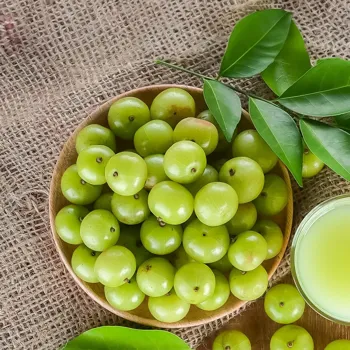
Consuming amla regularly can improve your skin health, strengthen your hair, and even improve your digestion. It's truly a versatile and beneficial superfood that deserves a place in your daily routine. Amla is so good when it helps in boosting your immunity and it is an immunity booster!
Moringa: The Nutrient Powerhouse Tree
Moringa, often called the "miracle tree," is gaining popularity worldwide for its incredible nutritional profile. Its leaves, pods, and seeds are all edible and packed with vitamins, minerals, and antioxidants. Moringa is a rich source of vitamin A, vitamin C, iron, calcium, and potassium.

It is believed that it helps in reducing inflammation, lowering cholesterol levels, and improving blood sugar control.
Moringa offers versatile ways to boost nutrition
Moringa leaves can be added to soups, stews, and smoothies. You can also find moringa powder, which can be mixed with water or juice. In some Indian cultures, moringa pods are cooked as a vegetable. The seeds can also be roasted and eaten as a snack.

Adding moringa to your diet can provide a significant boost of essential nutrients and promote overall well-being. It is considered a good nutritional supplement as well. Doctors often give it to people to keep their nutrition in check!
Millets: Nutritious ancient grains for all ages
Millets are ancient grains that have been a staple in Indian diets for centuries. They are naturally gluten-free, rich in fiber, and packed with essential nutrients like iron, magnesium, and phosphorus.
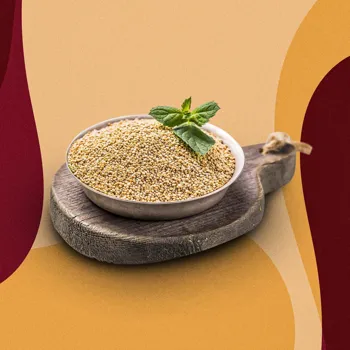
Millets are also low on the glycemic index, meaning they release sugar slowly into the bloodstream, making them a good choice for people with diabetes. They are good for everyone, not just adults but for the children as well. They are important to have for proper growth.
Various millets like bajra, jowar, ragi, foxtail are nutritious rice alternatives for health benefits
There are various types of millets, including bajra (pearl millet), jowar (sorghum), ragi (finger millet), and foxtail millet. You can use millets to make roti, porridge, dosa, idli, and even desserts. They are a versatile and nutritious alternative to rice and wheat.
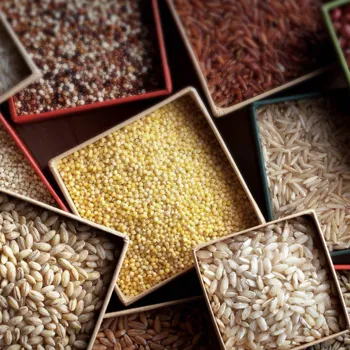
Including millets in your diet can improve your digestion, regulate your blood sugar levels, and provide sustained energy throughout the day. So, rediscover the goodness of these forgotten grains and make them a part of your healthy eating plan.
Do include it in your diet to take care of your health.
Indian diet relies on lentils for protein & nutrients, aiding growth
Lentils and pulses, such as dal, chickpeas, kidney beans, and moong beans, are essential components of the Indian diet. They are excellent sources of plant-based protein, fiber, and essential minerals like iron, folate, and potassium.
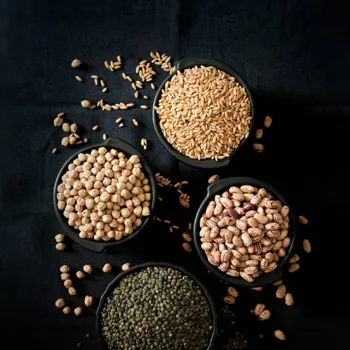
Protein is crucial for building and repairing tissues, while fiber promotes healthy digestion and keeps you feeling full longer. They are great for the body and helps in better growth if taken regularly.
Dal is a versatile and nutritious staple in Indian cuisine
Dal is a staple in most Indian homes, and there are countless ways to prepare it. You can also use lentils and pulses in soups, salads, and stews. Adding them to your diet can improve your heart health, lower your cholesterol levels, and help you manage your weight.
These nutritional stars can always keep you full and keep your health in check. It is a great source of protein and it is very healthy too.
Indian cuisine thrives on vibrant spices for flavor and health benefits, aiding digestion, blood pressure, and overall well-being
Indian cuisine is incomplete without its vibrant spices. Beyond adding flavor, spices also offer numerous health benefits.
Cumin aids digestion, cardamom freshens breath and may assist with blood pressure, ginger reduces nausea and has anti-inflammatory properties, and cloves contain eugenol, known for its antioxidant and anti-inflammatory effects.
Even simple additions like black pepper can assist with nutrient absorption. Incorporating a variety of spices into your cooking will not only tantalize your taste buds but also contribute to your overall well-being and health. It is good to include spices, but the correct amount of it.











